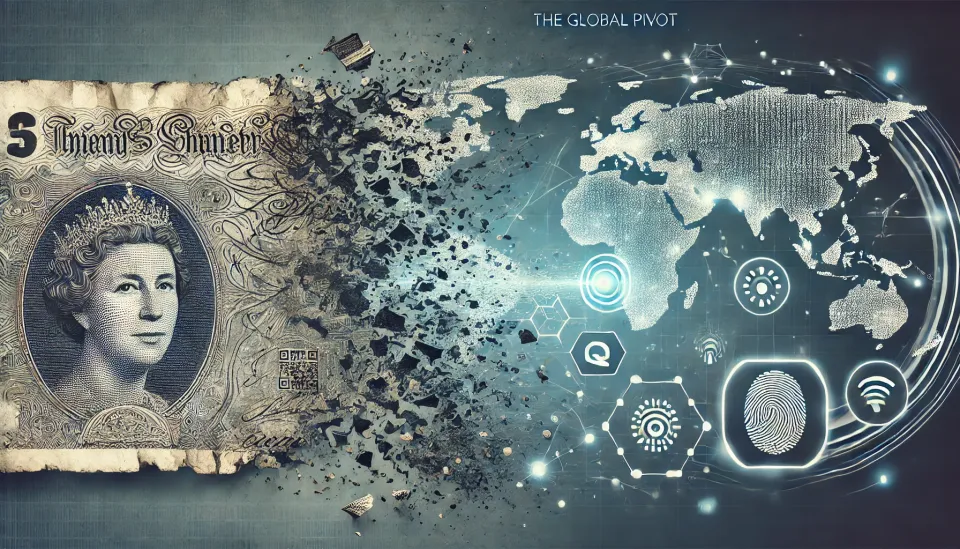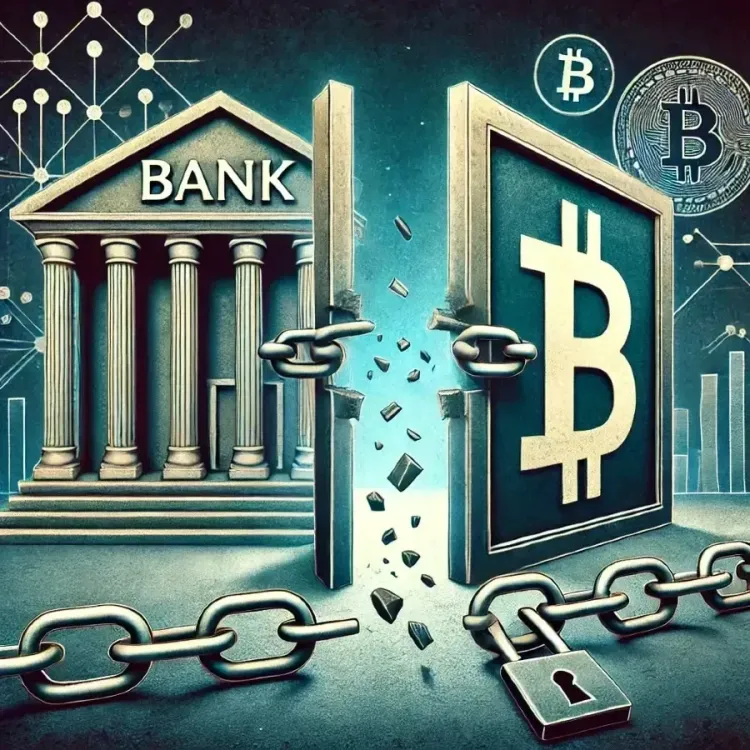Tap to Pay, Pray to Access: The Risks of a Cashless World

Let’s face a fact about a cashless world: money isn’t what it used to be. Not long ago, we were counting out coins for a cup of coffee or stashing bills in drawers "just in case." Now, all you need is a phone, a swipe, and a decent Wi-Fi signal. From Sweden’s almost mythical lack of ATMs to China’s daily life built entirely on QR codes, the world is gliding, sometimes sprinting, toward a cashless reality.
But as with every sleek, digitized system, there's a catch. When you take away physical money, what do you lose? Privacy? Control? Access?
Cashless Society: Convenience and Control
There’s no denying it: tapping to pay feels like magic. Digital payments have made money feel weightless. Cards, phones, watches: your entire wallet lives on your screen now. And the infrastructure is catching up fast:
- Sweden, Norway, and China are racing toward a world where paper money is basically obsolete.
- Central banks are cooking up state-issued digital currencies, think digital yuan or e-krona.
- In places like Kenya, platforms like M-Pesa are bringing financial services to the previously unbanked.
- And yes, security, it’s easier to track, harder to steal, and way less messy than handling coins.
In China, everything links to WeChat Pay or Alipay: bills, rent, takeout, sending your friend lunch money, even donating to a street performer. Forgot your wallet? You won’t even notice.
Why Cash Still Matters
Yet somehow, cash refuses to die. There are still over £70 billion in British banknotes floating around UK and beyond. That’s roughly £1,000 per person, which is wild when you think about how often you actually use it.
So why are we still holding onto cash?
- Anonymity and Privacy :
Want to buy something without leaving a digital breadcrumb trail? Cash is your best friend. - Nothing Beats Physical Presence
If the power goes out or the internet drops, cash still works. - Access for Everyone
Not everyone’s riding the digital wave. The elderly, the underbanked, and those in rural areas still depend on physical currency. - Checks on Power
If all your money lives on a platform someone else controls, you don’t really own it. That’s not just a conspiracy theory, it’s already happening through debanking and account freezes.
The Geopolitical Risks of a Cashless Economy
Here’s where things get spicy. Imagine a future where conflicts aren’t fought with bombs, but with blackouts and financial lockouts.
- Weaponized finance is real. Governments can freeze assets, block transactions, and shut down digital wallets with the flick of a switch.
- Cyberattacks could target financial infrastructure: no money in, no money out.
- China’s social credit system offers a peek into the darker side of this: behavior-based financial access. What if you couldn’t buy a plane ticket because your score dropped?
If you think that sounds dystopian, well... you're not wrong. But it doesn’t make it any less real.
Cash vs. Cashless: A Personal Experience
I lived in China for many years and honestly? I used cash in my first month and moment I set up all my payment apps I didn't see it after. My purses gathered dust. My front door opened with a keypad, my coffee came via app, and every bill, dinner, or ride was handled by Alipay or WeChat Pay. Seamless doesn’t even begin to describe it.
But then COVID hit.
Suddenly, if you weren’t digitally fluent, you were stuck. Older folks had no clue how to order groceries, sign up for COVID test and neighbors had to step in. Platforms that once felt empowering now felt... obsolete.
And then came the scary part: the economy slowed and since cities went into lock-downs there was no way to order or access groceries. We started depending on government rations. You had money in the bank, but no way to use it. You couldn’t withdraw it, you could pay with digital apps but there was nothing to spend it on. Cash, that supposedly outdated relic, became valuable again.
Digital systems are brilliant, until they aren’t.
When the system stops, what's your backup?
The Future: A Hybrid Model
So here’s a thought: maybe it’s not about choosing sides. Maybe the real power move is keeping options open.
Cash and digital payments can coexist. That way:
- You have a safety net if systems crash.
- Your privacy isn’t completely handed over to a database.
- People without smartphones or apps aren’t left out of the economy.
Let’s not throw out a centuries-old form of money just because the new version is shinier.
Yes, tapping your phone is cool. Yes, digital wallets are smart. But we’re rushing toward a world where convenience might cost us more than we think.
What happens when a server crashes? When your area gets internet cut off and you have no access to payment apps? When banks decide you're not a safe client anymore?
The next time you wave your phone at a reader, ask yourself: What happens if one day... it just doesn’t work?



Member discussion